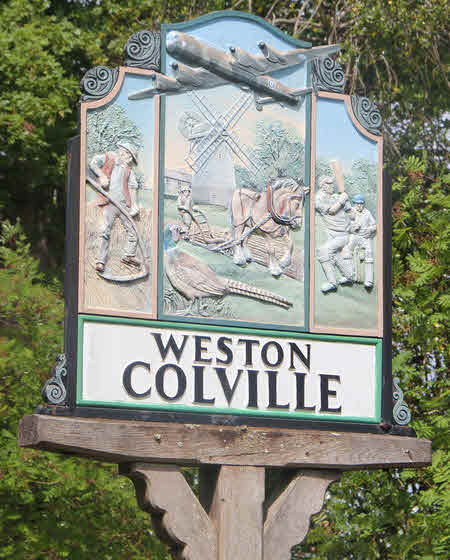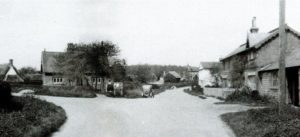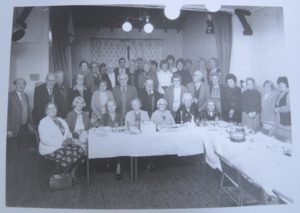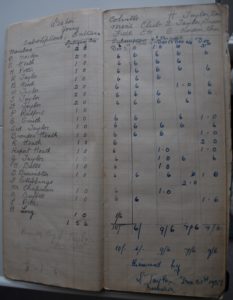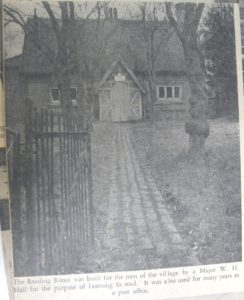The Reading Room and the smithy in the 1920s
There is more about the Reading Room here
The Reading Room was built in 1885 by William Henry Hall, Squire of Weston Colville and his contemporary, Sedley Taylor.
From Tim Cockerill’s account: Our Reading Room banned alcohol…Generally Reading Rooms were seen by the Establishment as a desirable alternative to the public house, of which there were three in Weston Colville in the late 19th. Century. The agricultural labourers…had spent most of their limited free time and money in these pubs. Ordinary people began to realise that they could have a say in their own lives and that education was the key to bettering themselves. The Reading Room gradually began to become popular, especially amongst those that had learnt to read. Members were asked to pay something like a penny a week, thus making them feel part of the set up. As late as 1933 the Revd. Lewis Carter Jonas, the Rector of Weston Colville, was still listed in Kelly’s Directory as the Secretary of the Reading Room and Library.
The reading material was censored, originally only men were allowed inside, and Henry Hall felt that the villagers should have shown more gratitude, noting in his diary ‘Drove through the rowdy, ungrateful village’.
Anthony Loates remembers: “After our winter Sunday School outing to a panto in Cambridge, we came back to the Reading Room for tea – triangular sandwiches with the crusts cut off, jelly and blancmange.”
Transport was limited so life was in the village. Freda Lawrence “Whatever was on in the Reading Room we all got together, everything was more or less done in the Reading Room, but nobody went in there to read.”
A read through the Trust accounts and minutes shows:
- a booking for hire of the Reading Room for a wedding reception in August 1974 was £3
- coal was delivered up until the 1980s and the chimney was swept in 1976 at a low cost – £1.25
- the cost involved in cancelling a dance in 1981-2 was £7
- there were two pianos, one ‘standing in the kitchen’ sold in 1974 and the other still being tuned in 1980, subject to a ‘piano fund’ urged by Olive Taylor
- ‘three pounds has been ‘realised from the sale of old scrap iron laying about the grounds, and also 50p for some old windows’
- in April 1974, a whist drive ‘held for the purpose of buying an electric kettle’ raised £5.58 but this sum would not cover the full cost
Weekly subscriptions to the Reading Room in 1937:
“A reading room, a public place for private thoughts.
In the twilight, half light of a candle- long ago
He opened a book.
And the world opened for him
He dreamt of faraway places and people”
